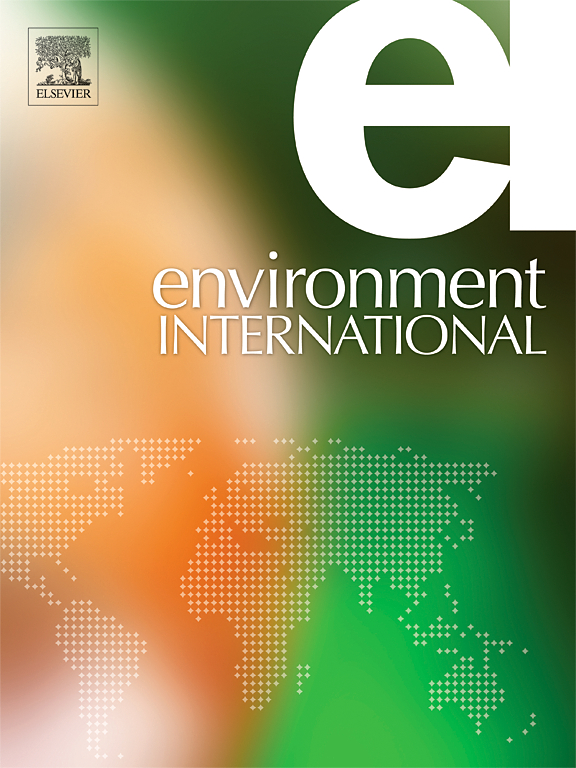Addressing climate change concerns in pediatric health care settings: exploring parental and physician perspectives
IF 10.3
1区 环境科学与生态学
Q1 ENVIRONMENTAL SCIENCES
引用次数: 0
Abstract
Introduction
In 2015, the American Academy of Pediatrics released a policy statement on pediatricians’ role in battling the damaging effects of the climate crisis on children, a particularly vulnerable population. However, pediatric healthcare providers report difficulties integrating these discussions into their clinical practices. We designed a survey to evaluate the perceptions of parents and pediatricians regarding the health impacts of climate change, with the goal of identifying key opportunities for education and engagement.
Methods
In this cross-sectional study, anonymous surveys were distributed to parents at 5 pediatric outpatient clinics in Southern New Jersey. A second anonymous survey was digitally distributed to physicians at the same outpatient clinics. We measured responses using a 4-point Likert scale and conducted a descriptive analysis, including frequencies, percentages, and 95 % confidence intervals.
Results
We collected 111 parent surveys and 37 physician surveys. Many parents and physicians reported feeling worried (somewhat or very much) about the impact of climate change on their child’s and patient’s physical (57.4 % for parents, 83.8 % for physicians) and mental (30.0 % for parents, 64.8 % for physicians) health. The top three areas of climate health concern among parents were air pollution, vector-carried diseases, and allergens and pollen. The top three concerns for physicians were air pollution, allergens and pollen, and food security.
Pediatricians reported that a lack of time (89.2 %) and knowledge (70.3 %) reduced their willingness (somewhat or very much) to discuss climate change during visits. When asked about solutions, they responded that patient education materials (75.6 %), communication training (70.2 %), and continuing professional education (78.3 %) would facilitate climate counseling (somewhat or very much).
Conclusions
Our results suggest that parents and pediatricians alike are concerned about the impact of climate change on child health. Additionally, pediatricians feel ill-equipped to integrate climate change education into their daily practices. Future efforts to provide additional resources to pediatricians can help both parents and patients face a worsening ecological climate.
解决儿童卫生保健环境中的气候变化问题:探索父母和医生的观点
2015年,美国儿科学会(American Academy of Pediatrics)发布了一份政策声明,阐述了儿科医生在应对气候危机对儿童(一个特别脆弱的群体)的破坏性影响方面的作用。然而,儿科医疗保健提供者报告说,很难将这些讨论纳入他们的临床实践。我们设计了一项调查,以评估家长和儿科医生对气候变化对健康影响的看法,目的是确定教育和参与的关键机会。方法在横断面研究中,对新泽西州南部5家儿科门诊诊所的家长进行匿名调查。第二份匿名调查以数字方式分发给同一门诊诊所的医生。我们使用4点李克特量表测量反应,并进行描述性分析,包括频率、百分比和95 %置信区间。结果共收集家长问卷111份,医生问卷37份。许多父母和医生报告说,他们对气候变化对孩子和病人的身体健康(父母57.4% %,医生83.8% %)和精神健康(父母30.0% %,医生64.8% %)的影响感到担心(有些或非常担心)。家长们最关心的三大气候健康问题是空气污染、媒介传播疾病、过敏原和花粉。医生最关心的三个问题是空气污染、过敏原和花粉以及食品安全。儿科医生报告说,缺乏时间(89.2% %)和知识(70.3% %)降低了他们在就诊期间讨论气候变化的意愿(在一定程度上或非常程度上)。当被问及解决方案时,他们回答说患者教育材料(75.6% %),沟通培训(70.2% %)和继续专业教育(78.3% %)将促进气候咨询(部分或非常)。结论气候变化对儿童健康的影响引起了家长和儿科医生的关注。此外,儿科医生觉得自己没有能力将气候变化教育融入日常实践。未来努力为儿科医生提供额外的资源,可以帮助父母和患者面对日益恶化的生态气候。
本文章由计算机程序翻译,如有差异,请以英文原文为准。
求助全文
约1分钟内获得全文
求助全文
来源期刊

Environment International
环境科学-环境科学
CiteScore
21.90
自引率
3.40%
发文量
734
审稿时长
2.8 months
期刊介绍:
Environmental Health publishes manuscripts focusing on critical aspects of environmental and occupational medicine, including studies in toxicology and epidemiology, to illuminate the human health implications of exposure to environmental hazards. The journal adopts an open-access model and practices open peer review.
It caters to scientists and practitioners across all environmental science domains, directly or indirectly impacting human health and well-being. With a commitment to enhancing the prevention of environmentally-related health risks, Environmental Health serves as a public health journal for the community and scientists engaged in matters of public health significance concerning the environment.
 求助内容:
求助内容: 应助结果提醒方式:
应助结果提醒方式:


